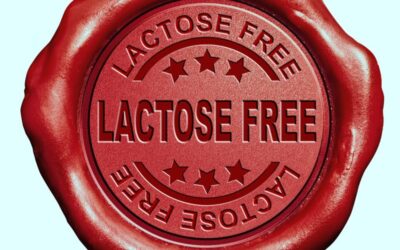A current hot topic is the effect of the microbiome and gut health on immunity and IBS symptoms. Typically, we have 39 trillion bacteria, viruses and fungi in our body. These are collectively known as the microbiome. Some of these are associated with disease, whilst others are important for beneficial bodily functions. These include our immune system, heart function, weight regulation, mental health and gut function. The microbiome has a key role in digestion, maintaining a healthy lining to the gut and regulating immune function. Those with irritable bowel syndrome (IBS) often have poor gut health. Common symptoms of IBS include: bloating, pain, excess wind and altered bowel habits (usually diarrhoea, constipation or a combination of both). Dietary and lifestyle changes not only improve IBS symptoms, but can restore a good balance of gut micro-organisms too. If you have IBS, follow the links for more information.
The microbiome and IBS
The human body is a complex ecosystem, teeming with trillions of micro-organisms that play a crucial role in maintaining health. Modern life has a negative impact on the microbiome and gut health. Overuse of antibiotics, dietary and lifestyle changes alter the internal environment of the gut. As the microbiome supports important bodily functions, an imbalance leads to a range of gastrointestinal disorders, including IBS. In the UK, ~1 in 5 people suffer from IBS symptoms. IBS significantly effects a person’s quality of life, both work and social. Several factors are associated with IBS. These include: a genetic predisposition; gut dysmotility; and changes in the gut microbiome. IBS sufferers find that symptoms are triggered by certain foods. So, identifying these triggers is crucial in better management of IBS symptoms and overall improvement in the efficiency of the microbiome.
IBS treatment options
In the UK, several IBS treatment options are available to manage symptoms. Firstly, lifestyle modification plays a crucial role. These include dietary changes, stress management and regular exercise. Over-the-counter medications like antispasmodics and laxatives can provide relief for mild cases. But, medications such as low-dose tricyclic antidepressants or serotonin modulators are prescribed for more severe symptoms. Cognitive behavioural therapy and gut-directed hypnotherapy are effective non-pharmacological approaches and can be used alongside other lifestyle changes. When it comes to dietary changes, the low FODMAP diet is shown by research to be an effective treatment for IBS and is shown to improve symptoms in over 75% of IBS sufferers.
What is the low FODMAP diet and how does it work?
FODMAPs (which stands for Fermentable Oligosaccharides, Disaccharides, Monosaccharides and Polyols) are a group of fermentable carbohydrates that are poorly absorbed in the small intestine. In sufferers, this leads to the common symptoms of IBS as they pass into the large intestine. The low FODMAP diet is a temporary diet, designed to identify triggers for IBS symptoms. This IBS treatment involves two main phases: elimination of FODMAPs and then gradual reintroduction.
The elimination phase involves restricting higher FODMAP foods for around 4-6 weeks. Once symptoms have improved, the reintroduction phase begins, by gradually challenging with higher FODMAP foods. Once triggers have been identified, they are either avoided or restricted and a more normal diet can resume.
Do probiotics support a healthy microbiome?
Probiotics are useful for promoting digestive health, strengthening the immune system, managing gastrointestinal disorders and potentially supporting mental well-being. Probiotic treatment involves a regular intake of live beneficial bacteria and yeasts to improve gut health and support a healthy microbiome. These microorganisms are naturally found in certain foods like yoghurt, kefir and fermented vegetables or in supplement form. Probiotics restore the balance of beneficial gut bacteria, aiding in the breakdown of food and enhancing nutrient absorption. Additionally, they strengthen the immune system and reduce inflammation. Research suggests probiotics play an important role in managing conditions like IBS.
The role of a FODMAP dietitian
Implementing the low FODMAP diet effectively is tricky and is best tackled with the guidance of an IBS Dietitian trained in FODMAPs. When sufferers try this alone, they find it difficult to manage and it results in a very restricted diet which can lead to nutrient deficiencies. The best results are seen with the support of an IBS dietitian, who is trained to customize the diet according to an individual’s specific needs. An IBS dietitian also ensures that the diet is nutritionally balanced and sustainable. Many find that weight loss, sometimes associated with the low FODMAP diet, is a real bonus, but for others this can be a problem. With support and guidance from a FODMAP dietitian, the journey to a more comfortable life is not only be practical, but also a more healthy approach to symptom relief.
Conclusion
The human microbiome is a fascinating world of microorganisms that significantly influences our overall health, especially when it comes to gastrointestinal conditions like IBS. Research continues to shed light on the crucial role played by the microbiome and gut health, making it an important target for therapeutic interventions. The low FODMAP diet has emerged over the last decade as a promising and effective treatment option for managing IBS symptoms. It offers hope and relief to millions of individuals worldwide struggling with this debilitating condition. If you have IBS or experience persistent gastrointestinal issues, give me a call to find out more about how the low FODMAP diet will help you. I’m an IBS Dietitian based in Cardiff, but work across the UK. I offer a free initial telephone consultation, so why not arrange a call today.




